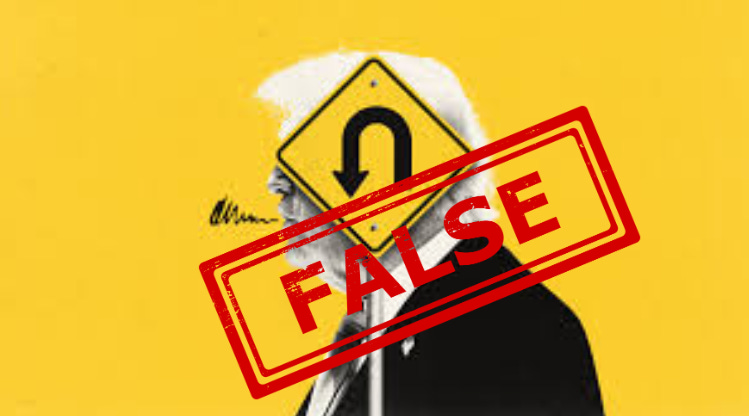TRUMP HAS NOT CHANGED
Legacy media have created the impression that Donald Trump has shifted his position on Ukraine, and that the US is poised to substantially increase its support. The "shift" is false.
This news has inspired hope, as Ukraine's just fight for survival is seen as everyone’s fight—a struggle between democracy and fascism.
Unfortunately, the reports of America’s “change in course” are simply not true. The media narrative is, at best, only half the story. Trump is not a friend of Ukraine, and spreading false hope is dangerous—it creates illusions that delay real, necessary action.
Trump wants people to believe he has changed sides because the majority of Americans, along with Congress, support Ukraine. He is also eager to distract his base from the ongoing scandal over the Epstein lists, which have been causing turmoil within the Republican Party.
But Trump is bluffing.
The support he touted in his recent “big Russia news,” which was immediately amplified by mass media worldwide, is not what it seems. The specifics—volume, type of aid, timeline for delivery—remain unclear. In other words, we have no idea what, if anything, will actually be delivered, or when.
Furthermore, this is not “support”—it’s business. President Biden provided arms to Ukraine as an unconditional aid package, helping a country fighting for survival in defiance of international law. Trump’s so-called “support” involves European countries buying American weapons and then transferring them to Ukraine. This is a sale, not assistance—and a reluctant one at that. It comes only after months of hesitation, despite Trump previously refusing even to let Ukraine purchase weapons for $50 billion.
The Trump administration has not approved a single new dollar in aid to Ukraine for 2025—yet it has managed to pass $3 trillion in tax cuts for the wealthiest Americans. Not even the returns from frozen Russian funds in U.S. banks have been released to Ukraine, unlike in Europe. The only aid Ukraine has received from the United States this year stems from decisions made under Biden in 2024. At times, Trump actively obstructed this support, inexplicably demanding that the defending nation—rather than the aggressor—be forced to negotiate.
Trump has talked up the prospect of tough sanctions on Russia, threatening, for example, a potential 100% tariff if Russia fails to agree to a ceasefire within 50 days. This is a hollow threat. Russia has already rejected multiple ceasefire proposals this year, and Putin recently stated his goal is to take all of Ukraine—so why would he agree to a truce under these terms? Moreover, US tariffs are largely meaningless; only 3% of Russia’s trade involves the United States. The Senate’s push for secondary tariffs remains unadopted and largely irrelevant.
These are not just empty threats—they are, in effect, direct aid to Putin, who is now shielded from meaningful new sanctions for at least the next two months. Trump’s stance blocks congressional efforts to introduce new sanctions, efforts that are supported by both Congress and the American public.
While Ukrainian cities are bombed daily and civilians endure constant terror, Trump replies with empty rhetoric, misleading promises, and a total halt to new measures. It is difficult to find a comparable display of moral abdication from a Western leader since the interwar years.
Trump has not changed his view on Ukraine—far from it. The U.S. administration is actively aiding Putin, aligning itself ideologically closer to the Russian dictatorship than to Ukrainian democracy. This administration has become an adversary of Europe and our security interests.
The media must now exercise caution. Spreading wishful thinking is not only poor journalism—it is potentially dangerous. Distorting reality wastes precious time that Ukraine and Europe simply cannot afford.
We must act based on facts, not Trump’s illusions.



US military industries will make a lot of money on the sales of these new Patriot missile systems, paid for by european governments. I do agree with those claiming that we - the europeans - have to pay more for our own security. Just too bad we are not able to produce these missilie systems within the EU, we are still dependent on being able to buy them from american companies.